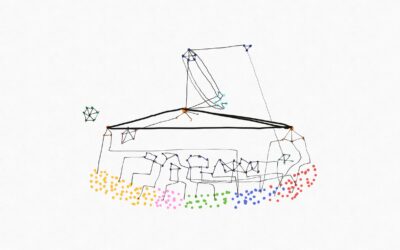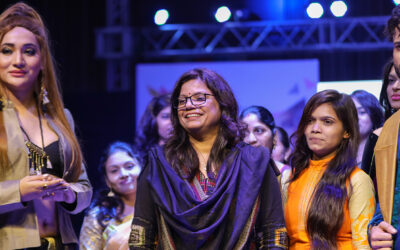“Bachchi ki samajhdaari ko bhi main thoda sa kehna chahti hun…saari bachiyon ko…ki already jab koi teen aadmi baithe hue hain uske andar…to aapko usme baithna nahi chahiye tha…I am saying this to protect the girls”, Kher was quoted as saying at the press conference. – The Indian Express.
About two months back, Kirron Kher, in a press conference, said the 22-year-old woman, who was allegedly gang-raped by an auto driver and his two accomplices, should have applied common sense and not boarded the vehicle as 3 men were already sitting inside. I don’t want to get into the dissection of her statement or her intention behind it. What worries me is how such ambiguous statements create a space to flourish victim blaming further, as it is already a growing phenomenon. It is the easiest way of diluting the violence by moral policing the victim. This is certainly not the first time that an influential person has made misogynistic statements in media. Here are a few more:
“She has two children, and as far as I know, she is separated from her husband. What was she doing at a nightclub so late at night?” – Madan Mitra, West Bengal Sports Minister
“Boys will be boys. They make mistakes.” – Mulayam Singh Yadav, Head of UP Samajwadi Party
“When being raped, she shouldn’t fight back. She should just be silent and allow the rape.” – One of the Gang Rapist in 2012 Delhi Gang Rape
“Fashionable dresses worn by women, even in rural areas, are among the factors leading to an increase in rape cases. The police have no control over this matter.” – Dinesh Reddy, Director General of the police in Andhra Pradesh
One of the most prominent reasons of why people blame a victim is to distance themselves from an unpleasant occurrence and thereby, confirm their own immunity to the risk. By labeling or accusing, they see the victim as someone different from themselves. It’s a reassurance like, “I am not like her. So, this would never happen to me.”
The other way we perpetuate victim blaming is the way we talk about it. Typically, the language surrounding domestic violence, rape and sexual assault focuses our attention on the one bearing it instead of the one doing it. The word ‘Victim’ itself is problematic. A sense of sympathy is attached to it which not only enslaves the person but also puts all the attention on him/her/zer. We should use more active sentences to avoid such conflicts. For example, rather than saying ‘Kalpana got raped’, we should say, ‘Nikhil raped Kalpana’. To make it easier to understand, I am here using the word ‘victim’, here.
Ironically many of us assume the victim to be a woman only. It just becomes more difficult for Men to talk about their abuse since they are often tagged as gay or fag. They will be told they are not “Man enough” to protect themselves and if they have been abused by a woman they should not even complain. Why not a #MenToo campaign to give voice to those who have been caged under toxic patriarchal masculinity.
I’m currently working in the field of child sexual abuse (CSA) and I know for a fact that re-victimization is rampant. It was interesting to see how people can even blame children as young as 4 years of age. Recently, at a famous international school in Kolkata, a 4 year old was sodomized by two school teachers. While the news got circulated, some were more concerned about the word ‘Rape’ being used. A student defended the school by saying, “It wasn’t rape. No physical injury or penovaginal intercourse happened. Maybe, it was a mere touching of private body parts.” I fail to understand how this negotiation is even relevant. If anything, it is disturbing.
Incidences like these form a hierarchy of abuse. It means that your scream for justice is justified only if you get raped. But if somebody harasses you in any other way, then you don’t match the criteria of being an ideal “Victim”, which reinforces re-victimization.
But, the easiest way of re-victimizing CSA victims is denying what they say. Imagine the plight of a 12 year old boy who is being abused by his elder cousin. He is of course, emotionally devastated. Somehow, being courageous, he finally decides to talk to his dad about it, but when he does it, his dad beats him for “making up stories”. He not only has to go through the trauma of being sexually abused but also face betrayal from his own people. What’s worse is, he may soon start blaming himself for everything that’s happening to him. This tendency to blame the victim is rooted deeply in our culture. Recently, when I was teaching at a school in Mumbai about personal safety, I asked the kids if it is ever the fault of a child if he/she/ze gets sexually abused. Some kids responded with a Yes:
- “Children who do bad things and say bad words are responsible if anything happens to them.”
- “Some kids enjoy these bad things. If not, why can’t they say no?”
- “Ladkiya besharam hoti hain. Unke bf hote hain” (Girls are shameless. They have boyfriends)
These are some of the responses from children aged between 10 to 13 years. I can’t completely hold them accountable for such statements. It’s something they see happening around. More relevant will be to explore how as a society, we are failing to empathize a victim. And how many of us are a part of these re-victimizations.
Initially, I thought blaming is difficult when a child is a victim. They certainly can’t comment on their dresses, mannerisms or behavior. Madhumita Pandey, Doctoral Researcher – Criminology, conducted a research in Tihar Central Jail at New Delhi in 2012. There, she talked to 100 sexual offenders. One of them was a 23-year-old who had not completed primary education and was working as a temple cleaner. He was imprisoned in 2010 for raping a 5-year-old girl. He described her as a small beggar who provoked him while he was busy with his duties. On asking to elaborate how she “provoked” him, he said, “she was touching me inappropriately. So I thought to teach her a lesson”.
Hate is not what I feel. It’s not empathy either but I can’t ignore the fact that they come from the same society as mine. The idea of killing them, throwing stones at their genitals or any other brutal punishment doesn’t look like a solution. Before thinking of such measures, we should look into our internal negativity. Most of the times, victims are more worried about the ‘Society’ while disclosing their abuse. Certainly, disclosure doesn’t always assure privilege and that’s when it starts feeling hopeless. We all are a part of this victim blaming phenomenon. Apart from having intellectual dialogues around policy making, promoting feminism, equality, strengthening safety laws, we can do some of the easiest things:
Stop telling rape jokes. They are not funny.
Stop blaming survivors of abuse. Don’t tell them it’s better to be safe than to be sorry.
Stop stereotyping gender roles.
Stop moral policing.
Stop interpreting consent in a twisted way.
Stop degrading other’s character for glorifying your own.
References:
- ‘Chandigarh gangrape: Victim should not have boarded autorickshaw when three men were already inside, says MP Kirron Kher’ – Indian express. November 30, 2017
- ‘Kolkata: Physical education teacher allegedly sexually assaults four-year-old at GD Birla school’- Scroll.in Dec 01, 2017
- ‘I interviewed convicted rapists in New Delhi – and then found one of their young victims’ – Madhumita Pandey in ‘The Conversation’




0 Comments